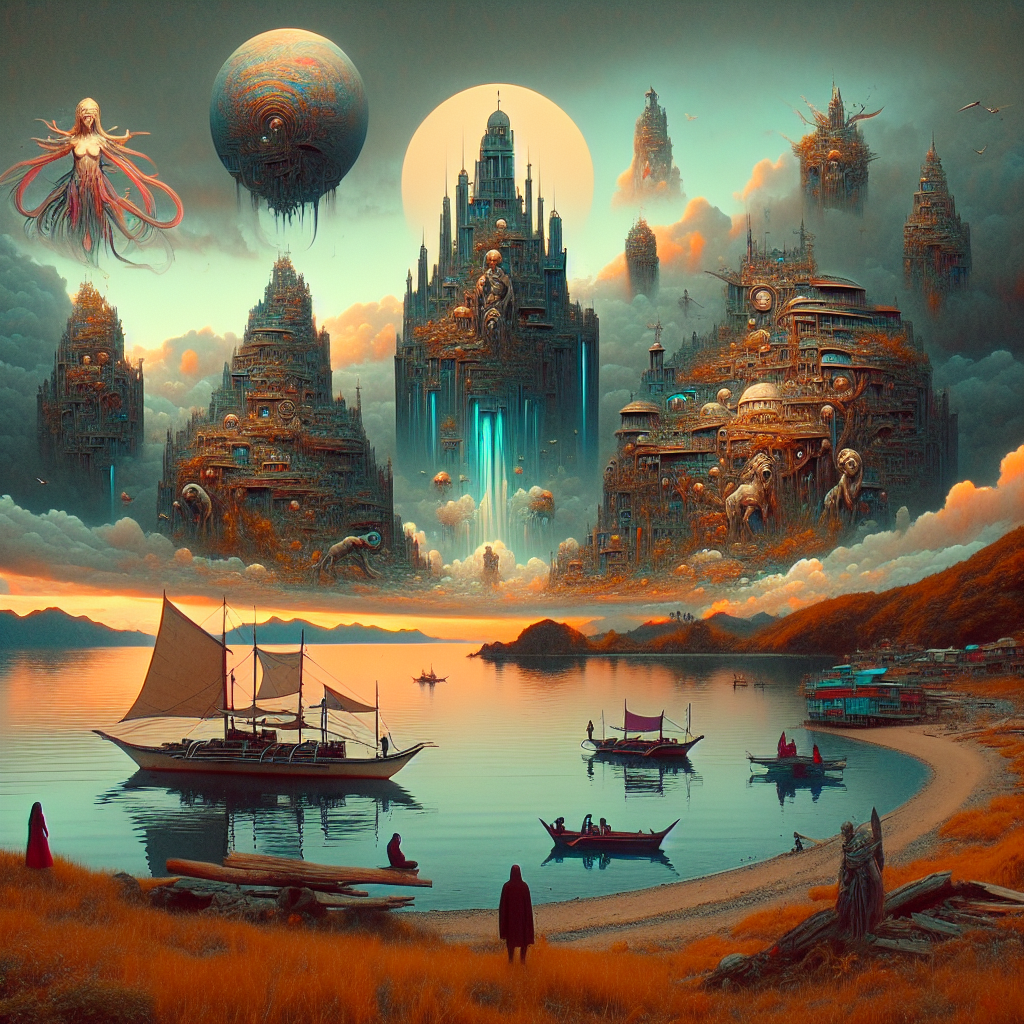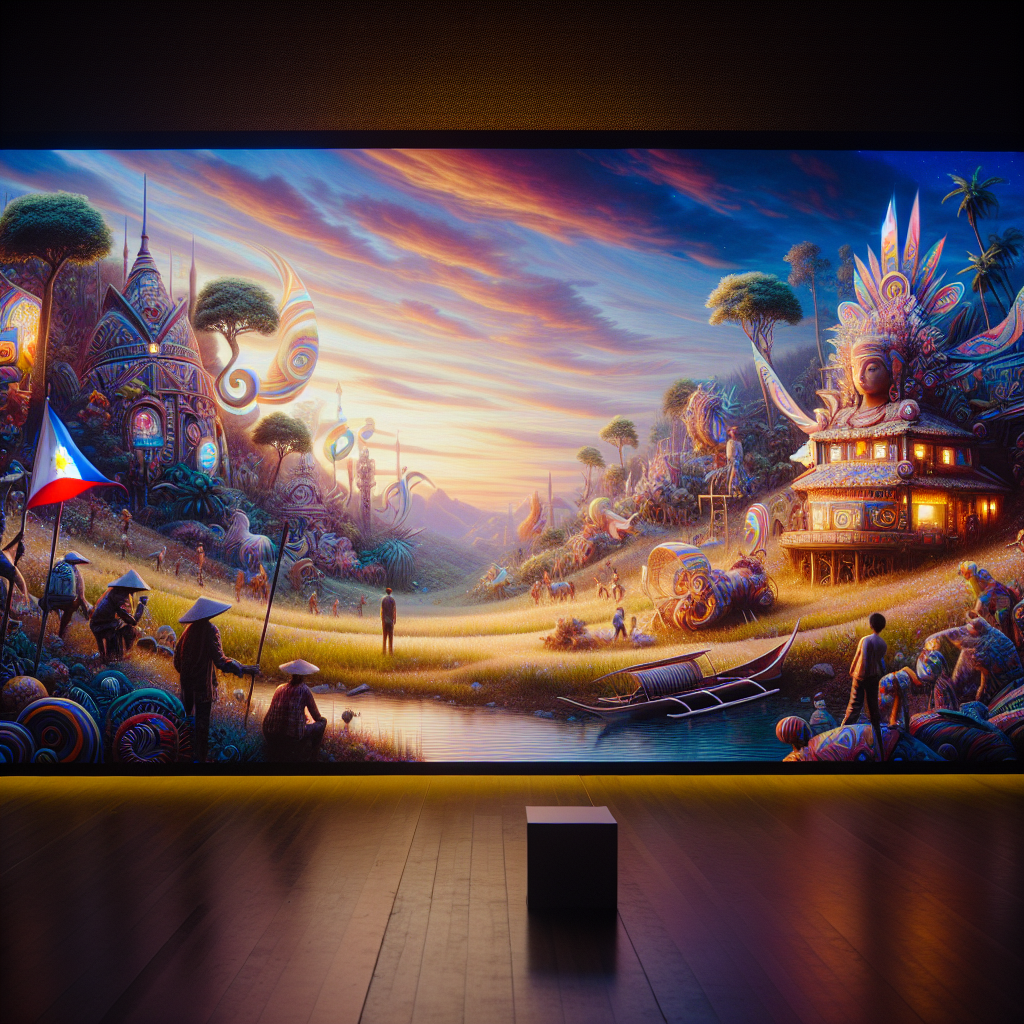These independent games shine the spotlight on Filipino arts, culture

Traditional Filipino Games: A Look Back at Our Cultural Heritage
Traditional Filipino games have long been a part of the country’s rich cultural heritage, serving as a reflection of the values, beliefs, and traditions of the Filipino people. These games have been passed down from generation to generation, providing a glimpse into the past and preserving the essence of Filipino culture.
One of the most popular traditional Filipino games is “Patintero,” a game that involves two teams trying to cross each other’s lines without being tagged. This game not only promotes teamwork and strategy but also showcases the Filipino value of camaraderie and sportsmanship. Another well-loved game is “Luksong Tinik,” where players must jump over a series of hurdles made of sticks arranged in a crisscross pattern. This game not only tests one’s agility and coordination but also highlights the creativity and resourcefulness of the Filipino people.
In recent years, there has been a resurgence of interest in traditional Filipino games, thanks in part to independent game developers who have created digital versions of these beloved pastimes. These games not only serve as a form of entertainment but also as a means of preserving and promoting Filipino arts and culture to a wider audience.
One such game is “Bayani,” a 2D fighting game that features characters inspired by Filipino folklore and mythology. Players can choose from a roster of heroes and villains based on iconic figures such as Lapu-Lapu, Maria Makiling, and the Manananggal. The game not only showcases the rich tapestry of Filipino folklore but also introduces players to the diverse mythologies of the Philippines.
Another game that shines the spotlight on Filipino arts and culture is “Anito: Defend a Land Enraged,” an action-adventure game set in a mythical version of the Philippines during pre-colonial times. Players take on the role of a hero tasked with defending their land from invading forces while exploring lush environments inspired by Filipino folklore and mythology. The game’s stunning visuals and immersive storytelling pay homage to the beauty and complexity of Filipino culture.
These independent games not only celebrate traditional Filipino games but also serve as a platform for Filipino game developers to showcase their talent and creativity on a global scale. By infusing elements of Filipino arts and culture into their games, these developers are helping to preserve and promote the unique heritage of the Philippines for future generations to appreciate and enjoy.
As the gaming industry continues to evolve, it is heartening to see independent developers embracing their cultural roots and creating games that pay homage to the traditions and stories that have shaped the Filipino identity. Through these games, players can immerse themselves in the vibrant world of Filipino arts and culture, gaining a deeper appreciation for the rich tapestry of traditions that make the Philippines truly unique.
In conclusion, traditional Filipino games have always been a source of pride and joy for the Filipino people, serving as a reminder of their shared heritage and values. Through the efforts of independent game developers, these games are being brought to a new generation of players, ensuring that the spirit of Filipino arts and culture continues to thrive in the digital age. These games not only entertain but also educate, offering a window into the rich tapestry of Filipino folklore, mythology, and traditions that have shaped the country’s identity for centuries.
Exploring Filipino Mythology Through Indie Games

Indie games have become a popular medium for exploring and showcasing different cultures and traditions from around the world. In recent years, there has been a growing interest in Filipino arts and culture, with several independent game developers creating games that highlight the rich mythology and folklore of the Philippines. These games not only entertain players but also serve as a platform for educating and raising awareness about Filipino heritage.
One such game that has garnered attention is “Bayani: Kanino Ka Kakampi?” Developed by Ranida Games, “Bayani” is a 2D fighting game that features characters inspired by Filipino heroes and mythological creatures. Players can choose from a roster of characters such as Tandang Sora, Lapu-Lapu, and Maria Makiling, each with their unique abilities and fighting styles. The game’s vibrant art style and engaging gameplay have received praise for its representation of Filipino culture and history.
Another indie game that explores Filipino mythology is “Anito: Defend a Land Enraged.” Developed by Anino Games, “Anito” is a role-playing game set in a fictionalized version of pre-colonial Philippines. Players take on the role of a hero tasked with defending their land from malevolent spirits and supernatural beings. The game’s narrative draws inspiration from various Filipino myths and legends, offering players a glimpse into the rich folklore of the Philippines.
In addition to these games, there are several other indie titles that delve into Filipino culture and traditions. “Tala” is a puzzle-platformer game that follows the journey of a young girl named Tala as she embarks on a quest to save her village from a dark force. The game’s art style is heavily influenced by Filipino folklore, featuring vibrant colors and intricate designs that pay homage to traditional Filipino art.
“Diwa” is another indie game that explores Filipino mythology through its narrative and gameplay. Developed by Kalaro Games, “Diwa” is a visual novel that follows the story of a young girl named Diwa who discovers her connection to the spirit world. The game incorporates elements of Filipino folklore, such as aswang and tikbalang, to create a captivating and immersive experience for players.
These indie games not only showcase the creativity and talent of Filipino game developers but also serve as a means of preserving and promoting Filipino arts and culture. By incorporating elements of mythology and folklore into their games, developers are able to share the rich heritage of the Philippines with a global audience. Through engaging gameplay and captivating narratives, these games offer players a unique opportunity to explore and learn about Filipino traditions in a fun and interactive way.
As the indie game industry continues to grow, we can expect to see more games that shine the spotlight on Filipino arts and culture. These games not only entertain but also educate and inspire, fostering a greater appreciation for the diverse and vibrant heritage of the Philippines. Whether you’re a fan of mythology, folklore, or simply enjoy playing indie games, exploring Filipino culture through these games is sure to be a rewarding and enriching experience.
The Rise of Filipino Indie Game Developers: Celebrating Creativity and Diversity in the Gaming Industry
The gaming industry has seen a surge in independent game developers in recent years, with many talented individuals and small teams creating unique and innovative games that push the boundaries of traditional gaming. Among these indie developers are a growing number of Filipino game creators who are using their talents to showcase the rich and diverse culture of the Philippines through their games.
One such game is “Bayani: Kanino Ka Kakampi?” which translates to “Hero: Who Will You Fight For?” This fighting game features characters inspired by Filipino folklore and mythology, such as the legendary hero Lapu-Lapu and the mythical creature Tikbalang. Players can choose their favorite hero and engage in fast-paced battles that incorporate elements of Filipino martial arts and culture. The game not only provides entertainment but also serves as a platform for promoting Filipino heritage and history to a global audience.
Another notable Filipino indie game is “Tadhana: The Filipino Mythology RPG,” a role-playing game that immerses players in a world filled with creatures and deities from Filipino folklore. Players can explore different regions inspired by Philippine landscapes and encounter various mythological beings as they embark on an epic quest to save their homeland. The game’s narrative is steeped in Filipino mythology, offering players a unique and engaging experience that celebrates the country’s rich cultural heritage.
These indie games not only showcase the creativity and talent of Filipino game developers but also highlight the importance of diversity and representation in the gaming industry. By incorporating elements of Filipino arts, culture, and history into their games, these developers are not only providing players with a fresh and unique gaming experience but also promoting awareness and appreciation for the rich cultural heritage of the Philippines.
In addition to promoting Filipino culture, these indie games also serve as a platform for addressing social issues and advocating for positive change. For example, the game “Bunso: The Youngest” tackles the issue of child labor in the Philippines, telling the story of a young boy who must navigate the challenges of working in a factory while trying to escape his circumstances. Through its immersive storytelling and thought-provoking gameplay, the game sheds light on the harsh realities faced by many Filipino children and raises awareness about the need for social reform.
The rise of Filipino indie game developers is a testament to the growing influence of Filipino creativity and talent in the global gaming industry. These developers are not only creating entertaining and engaging games but also using their platform to celebrate Filipino arts, culture, and heritage. By showcasing the diverse stories and traditions of the Philippines through their games, these developers are helping to promote cultural exchange and understanding among players from around the world.
As the gaming industry continues to evolve and diversify, it is essential to recognize and support the contributions of indie game developers who are pushing boundaries and challenging conventions. Filipino indie game developers are at the forefront of this movement, using their talents to create games that celebrate the unique culture and heritage of the Philippines while also addressing important social issues. By supporting these developers and playing their games, players can not only enjoy a fresh and innovative gaming experience but also contribute to the promotion of diversity and inclusivity in the gaming industry.

